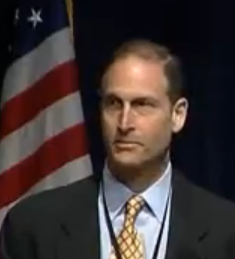A Quote by Mitch Kapor
Physicians today, as human beings, are not exempt from the perverse economic pressures created by fee-for-service regimes to see more patients for shorter appointments and order more tests and procedures. If the incentives were changed to pay to foster better health outcomes, I am convinced physician behavior would change over time.
Related Quotes
What the Affordable Care Act started was a change in the American health care system from paying for procedures to paying for outcomes, paying for health. Other nations have already made that move. We pay for procedures and we get the best procedures in the world and we get the most procedures in the world, and then we spend a huge chunk of our GDP on health care, but we don't have the best outcomes.
I think that if you have a single payer system and an opt-out for people who want to pay more [for better service, etc.], I think it would be better - and I think we'll eventually get there. It wouldn't be better at the top - [our current system] is the best in the world at the top. But the waste in the present system is awesome and we do get some very perverse incentives.
One of the jewels in the crown of Labour's time in office was the rescue of the National Health Service. As the Commonwealth Fund, the London School of Economics and the Nuffield Foundation have all shown, health reforms as well as additional investment were essential to improved outcomes, especially for poorer patients.
People and organizations other than doctors increasingly are assuming power to decide which medications to prescribe or procedures to undertake. More and more, decisions about personal healthcare are no longer made by the treating physicians in consultation with their patients, and based on the doctors' expertise.
The early pioneers of both wellness and network marketing were motivated by the sense that it was possible to create a better life than the conventional routes offered - better personal health and better economic health, respectively. Now the 'alternatives' of yesterday have become the economic powerhouses of today and tomorrow.


































